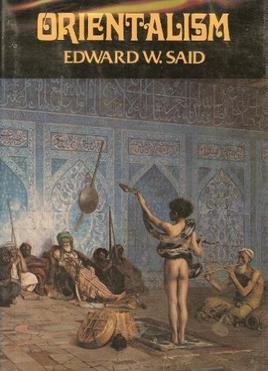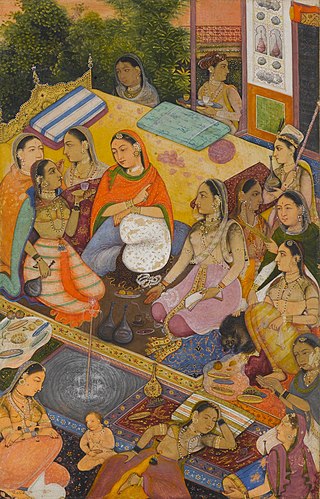Related Research Articles

The Middle East is a geopolitical region encompassing the Arabian Peninsula, the Levant, Turkey, Egypt, Iran, and Iraq. The term came into widespread usage as a replacement of the term Near East beginning in the early 20th century. The term "Middle East" has led to some confusion over its changing definitions, and being seen as too Eurocentric. The region includes the vast majority of the territories included in the closely associated definition of West Asia, but without the South Caucasus, and additionally includes all of Egypt and all of Turkey.
Diplomatic history deals with the history of international relations between states. Diplomatic history can be different from international relations in that the former can concern itself with the foreign policy of one state while the latter deals with relations between two or more states. Diplomatic history tends to be more concerned with the history of diplomacy, but international relations concern more with current events and creating a model intended to shed explanatory light on international politics.

The Near East is a transcontinental region around the East Mediterranean encompassing parts of West Asia, the Balkans, and North Africa; it also includes the historical Fertile Crescent, the Levant, Anatolia, East Thrace and Egypt. The term was invented by modern Western geographers and was originally applied to the Ottoman Empire, but today has varying definitions within different academic circles. The term Near East was used in conjunction with the Middle East and the Far East, together known as the "three Easts"; it was a separate term from the Middle East during earlier times and official British usage. Today, the terms Near East and Middle East are used interchangeably to refer to the same region.

The Middle East, also known as the Near East, is home to one of the Cradles of Civilization and has seen many of the world's oldest cultures and civilizations. The region's history started from the earliest human settlements and continues through several major pre- and post-Islamic Empires to today's nation-states of the Middle East.
Dilip Hiro was an Indian author, journalist and commentator who specialized in the politics of South Asia and Middle East. Education: Virginia Polytechnic Institute and State University, M.S., 1964.

Bruce Cumings is an American historian of East Asia, professor, lecturer and author. He is the Gustavus F. and Ann M. Swift Distinguished Service Professor in History, and the former chair of the history department at the University of Chicago. He formerly taught at Northwestern University and the University of Washington. He specializes in modern Korean history and contemporary international relations.

Efraim Karsh is an Israeli and British historian who is the founding director and emeritus professor of Middle East and Mediterranean Studies at King's College London. Since 2013, he has served as professor of political studies at Bar-Ilan University. He is also a principal research fellow and former director of the Middle East Forum, a Philadelphia-based think tank. He is a vocal critic of the New Historians, a group of Israeli scholars who have questioned the traditional Israeli narrative of the Arab–Israeli conflict.

Elie Kedourie was a British historian of the Middle East. He wrote from a perspective that dissented from many points of view taken as orthodox in the field. From 1953 to 1990, he taught at the London School of Economics, where he became Professor of Politics. Kedourie was famous for his rejection of what he called the "Chatham House version" of history, which viewed the story of the modern Middle East as one of continuous victimisation at the hands of the West, and instead castigated left-wing Western intellectuals for what he regarded as a naively romantic view of Islam.

Orientalism is a 1978 book by Edward W. Said, in which the author establishes the term "Orientalism" as a critical concept to describe the West's commonly contemptuous depiction and portrayal of The East, i.e. the Orient. Societies and peoples of the Orient are those who inhabit the places of Asia, North Africa, and the Middle East. Said argues that Orientalism, in the sense of the Western scholarship about the Eastern World, is inextricably tied to the imperialist societies who produced it, which makes much Orientalist work inherently political and servile to power.

Oriental studies is the academic field that studies Near Eastern and Far Eastern societies and cultures, languages, peoples, history and archaeology. In recent years, the subject has often been turned into the newer terms of Middle Eastern studies and Asian studies. Traditional Oriental studies in Europe is today generally focused on the discipline of Islamic studies; the study of China, especially traditional China, is often called Sinology. The study of East Asia in general, especially in the United States, is often called East Asian studies.

History is the systematic study and documentation of human past. History is an academic discipline which uses a narrative to describe, examine, question, and analyze past events, and investigate their patterns of cause and effect. Historians debate which narrative best explains an event, as well as the significance of different causes and effects. Historians debate the nature of history as an end in itself, and its usefulness in giving perspective on the problems of the present.

The historiography of the British Empire refers to the studies, sources, critical methods and interpretations used by scholars to develop a history of the British Empire. Historians and their ideas are the main focus here; specific lands and historical dates and episodes are covered in the article on the British Empire. Scholars have long studied the Empire, looking at the causes for its formation, its relations to the French and other empires, and the kinds of people who became imperialists or anti-imperialists, together with their mindsets. The history of the breakdown of the Empire has attracted scholars of the histories of the United States, the British Raj, and the African colonies. John Darwin (2013) identifies four imperial goals: colonising, civilising, converting, and commerce.
William Roger Louis CBE FBA, commonly known as Wm. Roger Louis or, informally, Roger Louis, is an American historian and a professor at the University of Texas at Austin. Louis is the editor-in-chief of The Oxford History of the British Empire, a former president of the American Historical Association (AHA), a former chairman of the U.S. Department of State's Historical Advisory Committee, and a founding director of the AHA's National History Center in Washington, D. C.
Edward Roger IngramEllis was an Anglo-Canadian historian of the British Empire, long-time former editor of the International History Review, and emeritus professor at Simon Fraser University. Having obtained his BA and MA degrees from Balliol College, Oxford, Ingram went on to receive his PhD in international history from the London School of Economics, completing his doctoral dissertation under the direction of Hilda Lee and Elie Kedourie. Most of Ingram's scholarly publishing focused on the so-called Great Game, the imperial rivalry between the British and Russian Empires in Central Asia. In 1966 he joined the faculty of Simon Fraser University in Burnaby, British Columbia, Canada. In 1978 he was made Professor of Imperial History at SFU and became editor of the International History Review, holding the former position until his retirement in 2003. He remained Professor of Imperial History Emeritus at SFU until his passing in 2022.

Women's history is the study of the role that women have played in history and the methods required to do so. It includes the study of the history of the growth of woman's rights throughout recorded history, personal achievements over a period of time, the examination of individual and groups of women of historical significance, and the effect that historical events have had on women. Inherent in the study of women's history is the belief that more traditional recordings of history have minimised or ignored the contributions of women to different fields and the effect that historical events had on women as a whole; in this respect, women's history is often a form of historical revisionism, seeking to challenge or expand the traditional historical consensus.

This article covers worldwide diplomacy and, more generally, the international relations of the great powers from 1814 to 1919. This era covers the period from the end of the Napoleonic Wars and the Congress of Vienna (1814–1815), to the end of the First World War and the Paris Peace Conference (1919–1920).

The United Kingdom entered World War I on 4 August 1914, when King George V declared war after the expiry of an ultimatum to the German Empire. The official explanation focused on protecting Belgium as a neutral country; the main reason, however, was to prevent a French defeat that would have left Germany in control of Western Europe. The Liberal Party was in power with prime minister H. H. Asquith and foreign minister Edward Grey leading the way. The Liberal cabinet made the decision, although the party had been strongly anti-war until the last minute. The Conservative Party was pro-war. The Liberals knew that if they split on the war issue, they would lose control of the government to the Conservatives.
East Asia–United States relations covers American relations with the region as a whole, as well as summaries of relations with China, Japan, Korea, Taiwan and smaller places. It includes diplomatic, military, economic, social and cultural ties. The emphasis is on historical developments.
Russia has relations with all of the countries of the Middle East. Historically it has been involved in numerous wars there, especially with Turkey and the Ottoman Empire, with Afghanistan, and recently in support of Syria. Today, when the Russian political establishment deals with Middle Eastern countries it seems to act a lot like it did in imperial times – often giving them broad diplomatic and even military support.